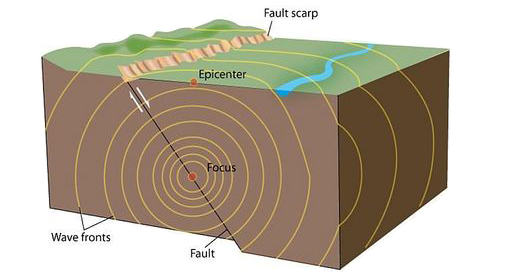The New SEO Professional: Master Of Both Left & Right Brain
Compared to its ultimate impact, the beginnings of an earthquake are actually quite small. Likewise, in terms of scope, the Penguin algorithm update was relatively miniscule, affecting only 3.1% of queries. Its impact on the industry, however, was far greater, as the de-emphasis of thin content in the SERPs drove SEO professionals to place […]
Compared to its ultimate impact, the beginnings of an earthquake are actually quite small.
Likewise, in terms of scope, the Penguin algorithm update was relatively miniscule, affecting only 3.1% of queries. Its impact on the industry, however, was far greater, as the de-emphasis of thin content in the SERPs drove SEO professionals to place a renewed emphasis on creating — and marketing — quality content.
In its aftermath, the industry has struggled somewhat to define what an SEO has become. Is he/she now a content-creating machine? What about the practice’s well-rooted origins in data analysis? Has that taken a backseat to content creation? The upheaval in the industry has left many SEOs with something of an existential crisis, scratching their heads asking, “What am I?”
The SEO Lives At The Intersection Of Liberal Arts & Technology
Now, aside from more cat pictures, certainly the last thing the Internet needs is more comparisons to Steve Jobs and Apple. But, in searching for the best way to get across what I think an SEO has become, I’m going to commit a cardinal sin of lame article writing and make just such a comparison.
At Apple’s WWDC event in 2010, Jobs famously said that, “[Apple] has always tried to be at the intersection of technology and liberal arts.” By that, I think he meant that Apple products are born from both creative-based and science-based thinking.
I think this is the place that SEO has arrived at. For many, pre-Penguin SEO practices were tipped in favor of the technology and data side, heavily focusing on tactics like link-building while content took a back seat. In a post-penguin world, the practices have become more evenly balanced, with a focus on both content and the data/tactics.
What Does this Mean for You?
There are many theories about how the brain operates, but a persistent one is the logical vs. creative schema. Ehrenwald’s Anatomy of Genius: Split Brains and Global Minds describes most people’s mind styles as either dominantly rational/logical or intuitive/artistic.
Intuitively, this makes sense when we consider the people we know and when we think about how our own brains operate — we can probably classify most as dominantly thinking in either a logical, data focused manner or with a creative bent.
Given that people tend to tack to the approaches they feel most comfortable with, there is a possibility that as an SEO, you or your team may be giving the most time and attention to either data/tactics or content, depending on your dominant mental schema.
If you buy the argument that the most successful SEOs now live at the intersection of technology (data) and liberal arts, any singular-focused approach may be detrimental to your natural search success. (And, given that much of our mental programming operates outside of our conscious awareness, careful consideration may cause some to discover that this mental ‘work-with-what-I-am-most-comfortable-with’ schema has been operating outside the confines of their awareness).
So, if you buy the post-Penguin “liberal arts-technology intersection” argument, the implications for success are that you (individual or collective) must be giving sufficient mindshare to both liberal arts and technology. In many ways, the two are separate — building content people want to link to and share and optimize on page factors, etc.
In other ways, the data side is supportive of the liberal arts side such as tracking how the content is resonating, discovering new opportunities for content creation, assessing the competitive landscape etc. In this regard, it is a true intersection, the place where the liberal arts and the technology come together.
What An SEO Professional Has Become
To come full circle, and answer our original question, “what is an SEO?” now, post-Penguin, the modern-day SEO is an organic search professional positioned at the intersection of liberal arts (content) and technology (data). This means you, as a practitioner or organization, must be aware if you are tacking too far to one side.
It may no longer be enough to outsource the liberal-arts side to content creators, internal or otherwise. Now, it is too critical to your natural search visibility that you have to get involved and start driving the creation of excellent content. (And, please don’t say that you don’t have the budget — see this excellent piece on creating content with no budget by John Doherty —Producing Great Content with No Budget.)
On the flip side, it may not be enough to put content out there without both support of on- and off-page tactics and without sufficient visibility into how content is driving links and shares, as it would ultimately impact your natural search visibility.
As we enter the new year, make it a resolution to at least evaluate where your SEO practice is relative to the liberal arts-technology intersection; what you discover may alter your practice for the better.
Contributing authors are invited to create content for Search Engine Land and are chosen for their expertise and contribution to the search community. Our contributors work under the oversight of the editorial staff and contributions are checked for quality and relevance to our readers. The opinions they express are their own.
Related stories
New on Search Engine Land


